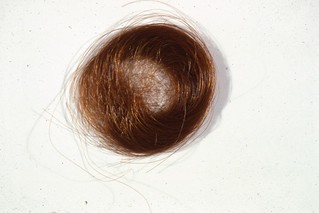 |
Izumi Shikibu, a poet at Empress Teishi's court.
(Shown here in a c. 1765 Kusazōshi by Komatsuken) |
When my desire
grows too fierce
I wear my bed clothes
inside out,
dark as the night's rough husk
- Ono no Komachi
I was gifted with a copy of
The Ink Dark Moon: Love Poems by Ono no Komachi and Izumi Shikibu which are translated by Jane Hirshfield and Mariko Aratani. Besides the poems, I found the story of these poets from over a millennium ago very interesting. It seems that in Japan's imperial Heian Court, female poets were well accepted. I would have assumed the opposite. They were given a voice and could have a place in literary circles.
In this particular time and culture, the arts were valued and women had a place. No other period in Japan’s literary history was as dominated by women as the Heian Period. Hirshfield writes that this court setting "proved to be a uniquely auspicious environment for women writers for several reasons, but foremost is the central role of the arts in the conduct of daily life."


This collection is subtitled as "love poems" and there are certainly many that concern matters of the heart, but there are also poems about the passage of time and other themes.
This body
grown fragile, floating,
a reed cut from its roots...
If a stream would ask me
to follow, I'd go, I think.
- Ono no Komachi
Ono no Komachi and Izumi Shikibu were important poets during Japan's Heian Age (795-1185). Their poems were generally waka (tanka) poems in form. Hirshfield says that "Komachi and Shikibu stand out as two of the greatest poets in an age of greatness not simply because they achieved technical virtuosity in their chosen form, the thirty-one syllable tanka verse, but because they used this form as a medium of reflection and introspection... each confronted her experience with a directness and honesty unusual in any age."
Izumi Shikibu was religious but also passionate - two qualities that are not always equally present. She did spend time in Buddhist monasteries and once contemplated becoming a nun. But she never denied her femininity, and her extramarital affairs made her the subject of ostracism by her family. While married, she fell in love with the Empress' son. After the death of the Prince she had an affair with the Prince's married brother.
the scandal caused the Prince's wife to leave him and Shikibu lived with him for five years. The Prince died during and during a period of intense mourning, she wrote more than 200 poems to her departed lover.
Remembering you...
The fireflies of this marsh
seem like sparks
that rise
from my body's longing.
- Izumi Shikibu
 |
| Ono no Komachi as an old woman, a woodcut by Tsukioka Yoshitoshi |
A life in vain.
My looks, talents faded
like these cherry blossoms
paling in the endless rains
that I gaze out upon, alone
- Ono no Komachi
Jane Hirshfield is a well known poet with many connections to Japanese forms and philosophy. With the help of Mariko Aratani, she translated into the English language these poems, many of which were not available in English.
If you are interested in the tanka genre, women poets, or this period and gives us new insight into life as lived during the Heian Era, considered by many scholars as a golden age for Japanese poetry and literature.
If you have ever read classical Japanese literature by women, you probably are more likely to know
Sei Shonagon's The Pillow Book or
Murasaki Shikibu's The Tale of Genji than these poets. (Shikibu is a title, not a name, so the two writers are not related except both were part of the court of Empress Akiko. Komachi wrote 100 years earlier.)
All of these works deal with the Heian Period life and the sexual intrigue that was well known but usually happening under covers of silk and darkness. Court poets wrote about almost anything happening around them from an affair, rain and snow storms, aging, or returning a fan. The poems are devoid of the politics of courtly life.
In this world
love has no color —
yet how deeply
my body
is stained by yours.
Besides the poems, the book has a fascinating introduction and information about the process of translation. The latter topic has interested me of late, as I may take on some translation myself.
Hirshfield writes about that process:
"Anyone who attempts that impossible task, the translation of poetry, must at some point wonder what exactly a poem might be, if not its own body of words. For surely, all can attest who have made the hard and joyous effort to write a poem of their own, poetry dwells in words: absolutely particular in meaning, irreplaceably individual in rhythm and sound... the act of translation constitutes a leap of faith, a belief that somehow this part of a poem that lives both through words and beyond words can be kept alive, can move from its life in one verbal body to another."
Look at their translation of one poem by Komachi, and then compare it to another translation.
I know it must be this way
in the waking world,
but how cruel ---
even in my dreams
we hide from others' eyes
Another translation of that poem
by Edwin Cranston, a translator who makes no claim to being a poet himself, renders that poem in this way.
In the waking world
Such caution may be well advised,
But even in dreams
To see him watching others' eyes ---
This is wretchedness itself!
Which translation is "correct?" Or is no translation really correct? As a poet, I prefer the Hirshfield version which is probably less literal. But there have always been those purists who would claim that literature should only be read in its original language. Of course, that takes a great deal of literature away from us.
This pine tree by the rock
must have its memories too:
after a thousand years,
see how its branches
lean towards the ground
- Izumi Shikibu
No way to see him
on this moonless night ---
I lie awake longing, burning,
breasts racing fire,
heart in flames.
- Ono no Komachi








